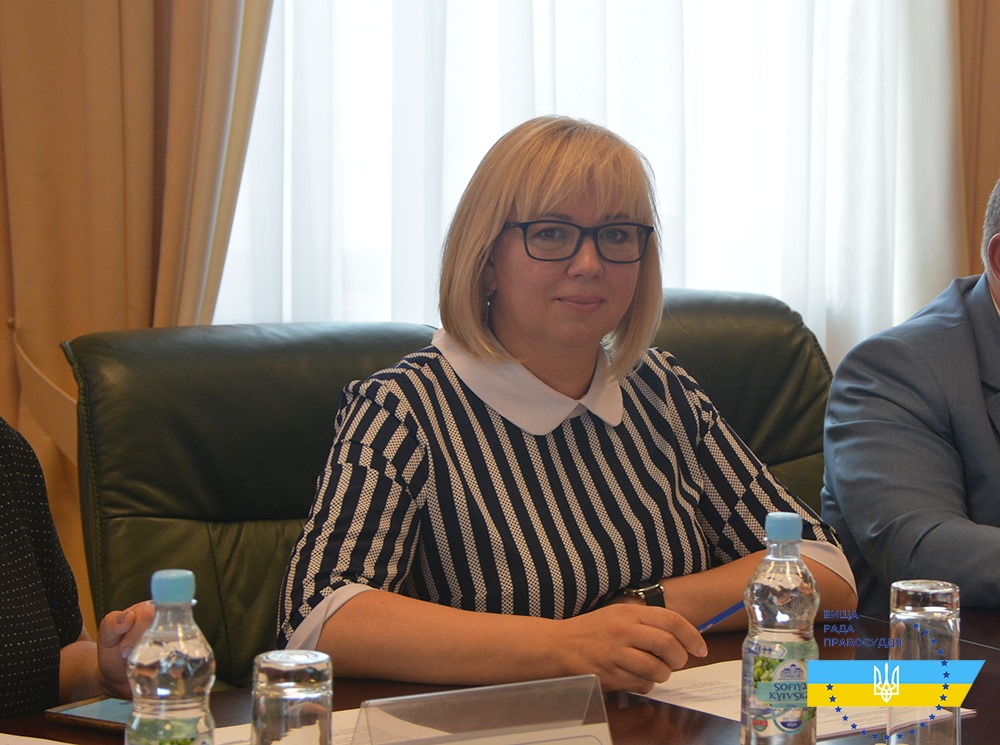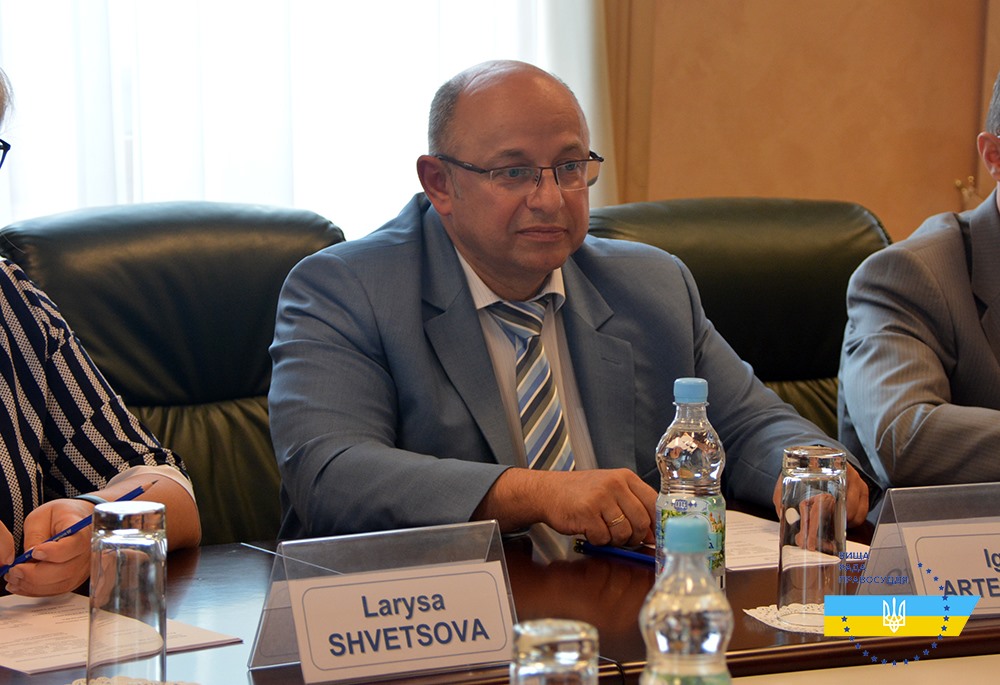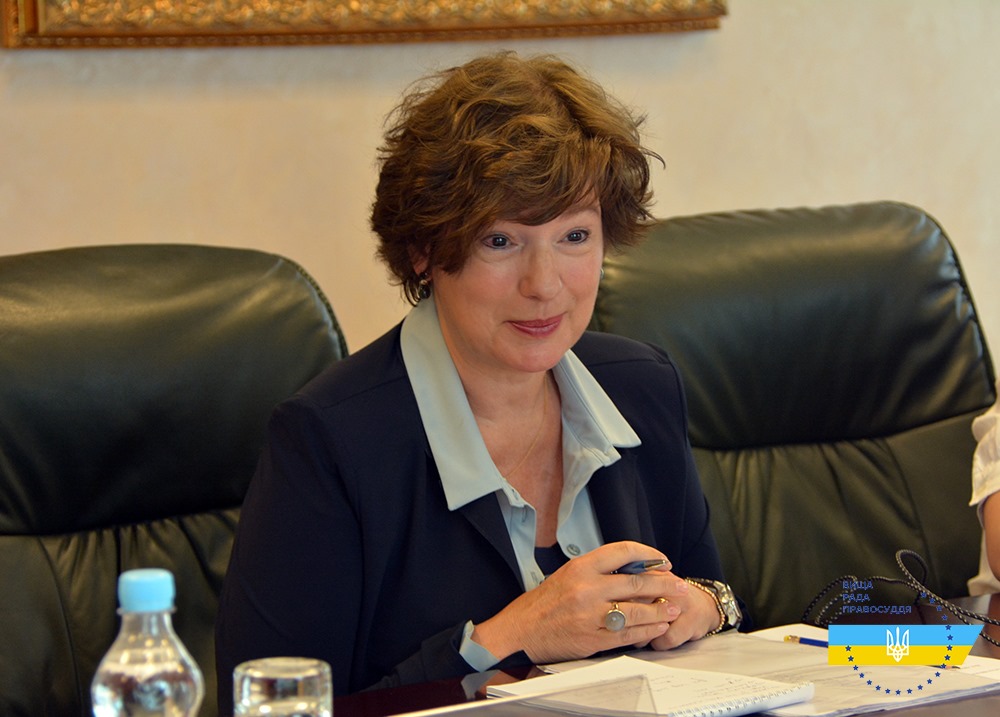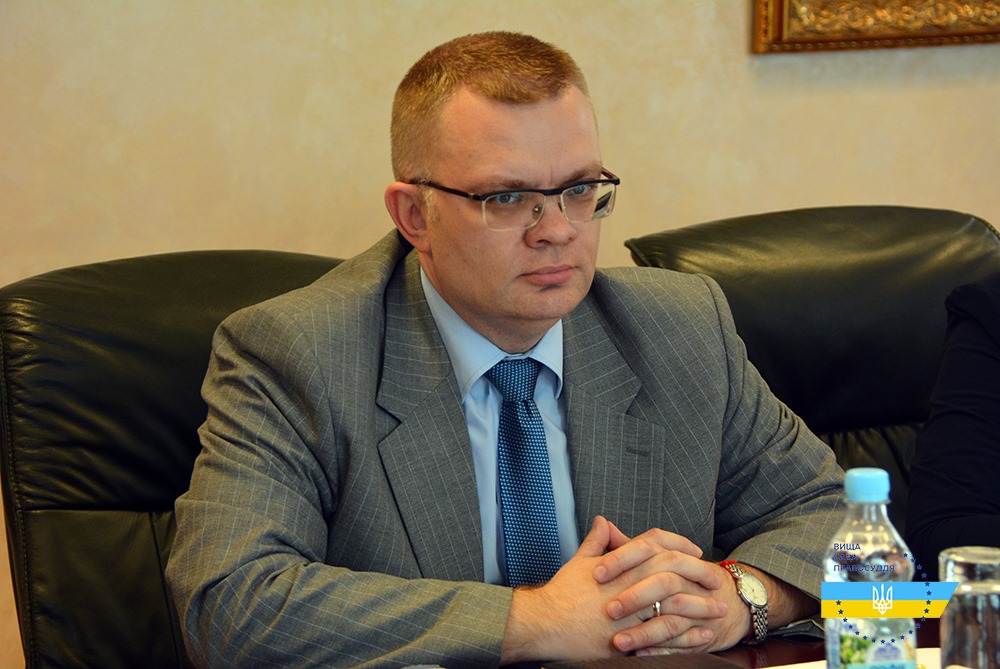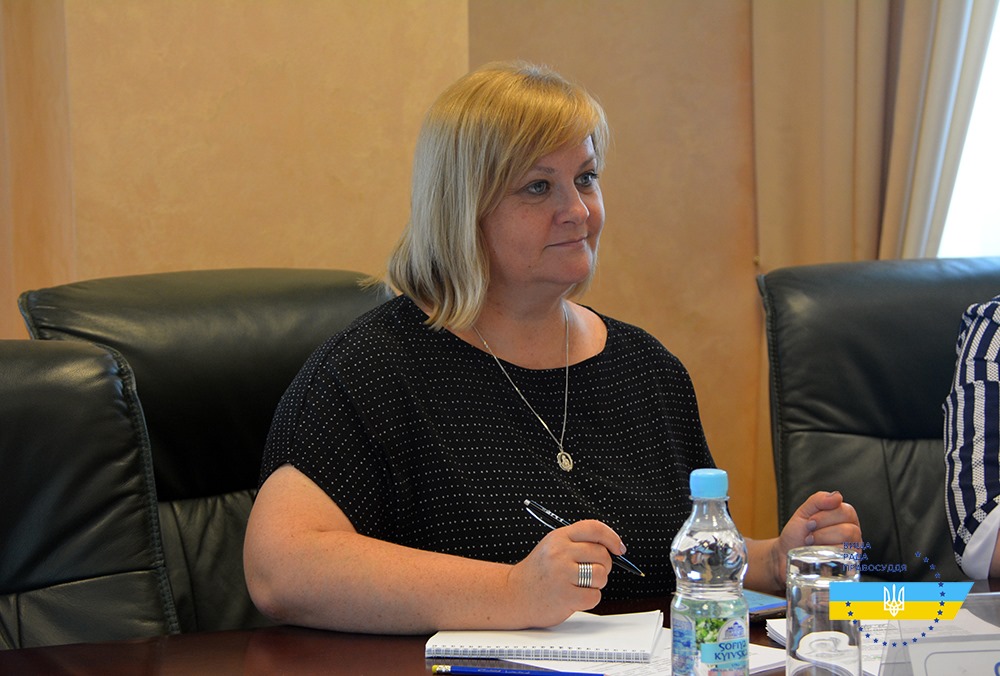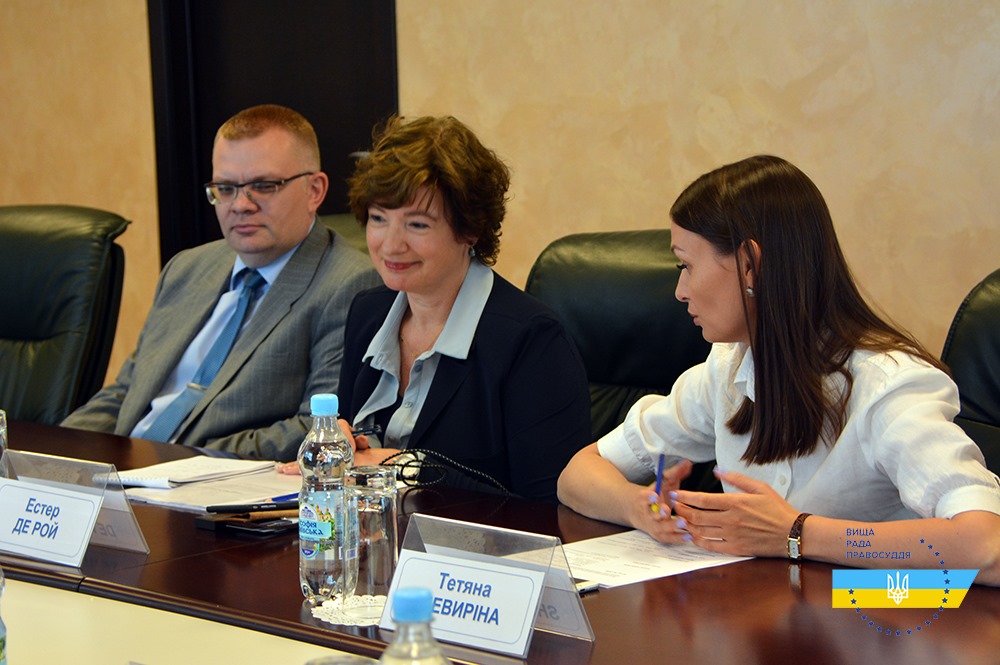The possibility of introducing special rules of work of courts of first and appellate instances has been discussed during a meeting held on July 4, 2019 in the High Council of Justice of council members with representatives of the international project “Court, citizens, society, state: cooperation for change” (hereinafter – the Project), which is being implemented on the basis of the Appellate Court of Odessa region with the support of the Government of the Kingdom of the Netherlands and organizational support of Odessa regional organization of the All-Ukrainian public Organization “Committee of voters of Ukraine”.
At the second stage of the project, it will be joined by the expert in the field of justice quality, professor at the University of Utrecht (Kingdom of the Netherlands) Philipp Lanbrook, public organization “2 May group” (Odessa).
During the event, the results of the first stage of the project – rules for organizing effective civil and criminal proceedings-were presented and ways to implement them were discussed.
The meeting was attended by members of the HCJ Igor Artemenko and Larisa Shvetsova, judge, Deputy Chairman of Amsterdam District Court Esther De Roy, Project Coordinator is the Deputy Chairman of Odessa region Appellate Court, Andrey Drishlyuk, judge of Ochakovsky City District Court of Mykolaiv region Tatyana Shevyrina.
Oksana Lysenko, head of the information and communication support department, and Vladislav Gurtenko, head of the International Cooperation Department, took part in the meeting on behalf of HCJ Secretariat.
As the judge, Deputy Chairman of Amsterdam District Court Esther De Roy noted, such guidelines are successfully applied in the Dutch justice system as an element of judicial management and, in fact, are a soft law system that allows you to improve the process of organizing the trial, avoid abuse on the part of participants in the trial, for example, delaying the consideration of a case by the defense or resolving issues of recusal and selfrecusal of a judge. “These guidelines eliminate gaps or contradictions in the procedural legislation, and their application allows judges to act transparently,” said Esther De Roy.
According to Larisa Shvetsova, the initiative is appropriate, but it requires the development of a special implementation mechanism so that the application of new guidelines by a judge does not become the basis for disciplinary liability. One of the ways to test the guidelines can be the practice of applying them in model courts: from the first instance to the Supreme Court, “Igor Artemenko noted,” another mechanism is by making changes to the current legislation. According to L. Shvetsova, this initiative and the content of the guidelines for organizing effective civil and criminal proceedings will be discussed in the High Council of Justice and in the judicial community

